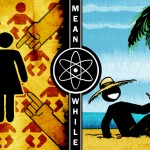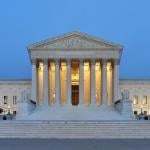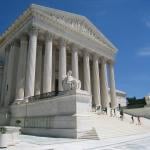Every Monday in Citizenship Confusion, Alan Noble discusses how we confuse our heavenly citizenship with citizenship to the state, culture, and the world.
At the end of last week, Afganistan erupted with protests, demonstrations, and violence over news that U.S. soldiers had burned Korans. In this violence, many were killed, including two U.S. soldiers. In order to quell the fighting and assure Muslims that the United States did not intentionally desecrate the Koran and mock Muslim beliefs and culture, President Obama issued an apology to the president of Afganistan. The GOP presidential candidates and many conservatives and Christians were disgusted with Obama’s apology and some saw it as further sign of the president’s favoring of Islam over Christianity.
According to the New York Times, Newt Gingrich called Obama’s actions an “outrage.”
The Washington Post reported that Rick Santorum called it “unacceptable.”
And National Review columnist Andrew McCarthy implies that our “Islamophilic” president must have lost his mind to apologize to Afganistan.
I have read a number of objections to Obama’s apology, but nearly all of them fail to acknowledge the complexity of fighting a global war against terror.
Some argue that President Karzai of Afganistan should be the one apologizing to us, since it was an Afgani soldier who killed our two soldiers. But this strikes me as a strange sort of ethic, one that we would not likely teach our own kids. If your child insulted another kid and received a black eye for it, your child would still be responsible for apologizing, even if the other kid’s reaction was completely out of proportion. Why? Because we are responsible for our own mistakes, not our neighbor’s.
Another argument is that since Muslims are rioting over something trivial (the burning of a book) that was an accident, we should not validate their ridiculous protests by apologizing. But this, it seems to me, misunderstands the issue. There is a good chance that many of the Muslims who are rioting have no idea that the burning was accidental. It seems reasonable to suspect that some radicals would use the Koran burning as an opportunity to spread anti-US sentiment by sharing the story that US troops burned the books and ignoring the fact that it was an accident.
In fact, The New York Times article reports on an Afgani lawmaker who believes that the accident was used by foreign governments to anger Muslims for “political gain.” In light of this, presenting our side of the story with an apology for our negligence seems more than reasonable. If this Afgani lawmaker’s suspicion is true, then Obama’s apology worked directly against anti-US propaganda, which strikes me as a very good thing.
Others point that Christians didn’t riot when our troops burned Bibles, therefore Muslims shouldn’t either. But this is an odd logic. It suggests that since Muslims don’t share our values concerning holy scriptures, they must be wrong. Christians didn’t riot because we don’t care if you burn the Bible [Edit: 2/28/12: It has come to my attention that some Christians do in fact care if the Bible is burnt. I did not mean to imply that I spoke for all Christians; I really did not realize some Christians thought this way. That said, I still think it is fair to acknowledge that for many Christians, particularly in the US, the Bible is not physically sacred in the same way that the Koran is for many Muslims]. Muslims did because they view the Koran as physically sacred. So, it was not insensitive or wrong for our troops to burn Bibles, but it is wrong of them to burn Korans. This alleged double standard is really just an accurate understanding of the differences in our cultures.
Still others argued that we should be punishing those who killed our troops rather than apologizing for accidentally burning the Korans. I want to sugest that this is an either/or fallacy. Justice in this situation involves apologizing for our negligence and actively seeking punishment for those who killed our troops.
Finally, I have heard it said that an apology like this makes us appear to be weak. This may be the case, but after overthrowing and occupying several Arab countries, stationing military bases in the Middle East, Guantanamo Bay, bin Laden, and intensive surveillance of Muslim communities by the NYPD, I don’t think we have to worry about appearing soft. If anything, we’re viewed as bullies. And, in any case, if we were negligent and committed a cultural offense, then we should apologize.
This debate over whether or not Obama should have apologized brings out an important conception of Islam in American society. In some of these responses and in much of our public discussion on the war on terror and Islam, there seems to be a general desire to completely write-off Muslims as inherently and hopelessly violent, religious, and irrational. I’ve seen both liberal atheists and conservative Christians speak this way about Muslims. They believe that we can’t establish a democracy in their countries, we can’t reason with them, and we can’t ignore them, so what option is left? Violence.
In fact, in his National Review article, McCarthy claims that if the Taliban and such groups are really our enemies, we should annihilate them without regard to “civilians”:
“If our government believes the Taliban and other factions are our enemies, allied with al-Qaeda to kill Americans, then we should unleash our military to destroy them. This should not be an endless counterinsurgency experiment that prioritizes the protection of Afghan civilians and the construction of Afghan civil society; it should be a war that our vast might enables us to win rapidly and decisively.”
Even if they aren’t our enemies, we shouldn’t allow Muslims into our country, argues McCarthy in the same article:
“If, according to the president, we need to apologize to Muslims because we must accept that they have such an innate, extraordinary ardor for their religion that barbaric reactions to trivial slights are inevitable, then they should not be invited to enter a civilized country. At the very least, our immigration laws should exclude entry from Muslim-majority countries unless and until those countries expressly repeal repressive sharia laws (e.g., the death penalty for apostates) and adopt American standards of non-discrimination against, tolerance of, and protection for religious minorities.”
This is what concerns me: an intransigent commitment to viewing Muslims as our eternal enemies and a lost cause, and therefore unworthy of our apology, our citizenship, and our not-destroying-them-ness. National humility, rather than exceptionalism, will go a long way in convincing Muslims that we are not trying to destroy all Muslims.











